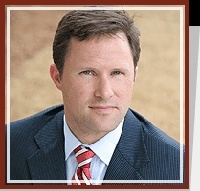Social Circle White Collar Crime Lawyer, Georgia
Sponsored Law Firm
-
 x
x

Click For More Info:
-
The Law Offices of Richard L. Cooper, P.A.
848 Brickell Avenue Suite 800 Miami, FL 33131» view mapDWI/DUI, Drug Trafficking, Felony Nationally Ranked Top 40 Under 40
With Richard L. Cooper you can expect a trusted confidant who will work diligently to fully understand your case and determine a road map to help you regain control of your life.
800-756-2781
M. Byron Morgan
✓ VERIFIEDCriminal, DUI-DWI, Felony, Misdemeanor, White Collar Crime
Byron has been practicing criminal defense and family law for over 28 years. Look at his website at www.byronthelawyer.com. Byron constantly has cli... (more)
Thomas Ford
✓ VERIFIEDCriminal, DUI-DWI, Felony, RICO Act, White Collar Crime
Expect Results. Not Excuses
FREE CONSULTATION
CONTACTPatrick J. McDonough
Litigation, White Collar Crime, DUI-DWI, Criminal
Status: In Good Standing Licensed: 30 Years
Charles C. Murphy
Litigation, Intellectual Property, White Collar Crime, Antitrust
Status: In Good Standing Licensed: 52 Years
W. Carl Lietz
Federal Appellate Practice, Public Interest Law, White Collar Crime, Criminal
Status: In Good Standing
Steven Paul Berne
Litigation, Federal, White Collar Crime, Criminal
Status: In Good Standing Licensed: 37 Years
FREE CONSULTATION
CONTACTFREE CONSULTATION
CONTACT
 Richard L. Cooper Miami, FL
Richard L. Cooper Miami, FL AboutMiami Attorney at Law
AboutMiami Attorney at Law ServicesCriminal Defense
ServicesCriminal Defense


